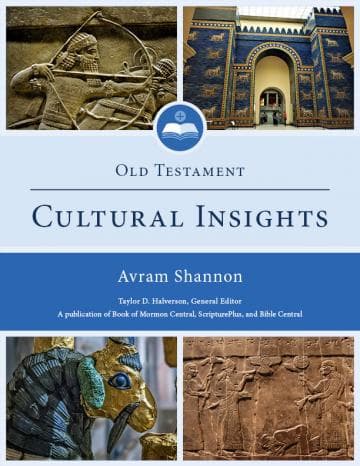Book
71 Chapters

The text of the Bible seems to indicate that much of the Bible is the result of redaction and editing, much like the Book of Mormon. The book of Genesis, for example, contains numerous examples of stories that seem to have internal inconsistencies (like how Joseph gets out the pit and into Egypt— compare Genesis 37:36 with Genesis 39:1) or have different details side by side (like the number of animals that Noah takes into the Ark—compare Genesis 6:20 with Genesis 7:2–3). These differences should not be an excuse to reject the Bible or biblical authority but should be a chance for us to reflect upon and think about “how merciful the Lord hath been” (see Moroni 10:3) in transmitting the scriptures to us. The five books of Moses include material that has come down to us through a sometimes complex process of redacting and editing, which points away from Moses being the specific author of the first five books of the Bible. Comparably, that Mormon used both named and anonymous sources does not diminish the value of his record. Likewise, the Bible is still valuable and contains inspired words even if we do not have names for all the authors and editors who played a role in crafting the biblical records.
That Moses likely did not write Genesis through Deuteronomy may, at first, seem like a difficulty, but it does not need to be for Latter-day Saints. Moses can still be a historical prophet without having written these book in their current form, and the books don’t need to have been written by Moses specifically to still be authentic records of God’s dealings with His children. In this context, it is therefore worth noting that none of first books of the Bible claim that Moses wrote them. In fact, the books make no claims about authorship at all. Moses does not appear in Genesis at all—he first appears as a baby in Exodus, and his death is recorded in Deuteronomy. In all places where he is mentioned in the scriptures, Moses is talked about in the third person. The books of Moses are about Moses (at least Exodus through Deuteronomy are) but do not claim to be written by him, much like the two books of Samuel. In the same way that the book of Alma in its present form was composed by Mormon from authentic material from Alma, the five books of Moses seem to have been composed and compiled using authentic material from Moses.
The Book of Mormon presents a fairly nuanced view of the question of Mosaic authorship. Nephi, for example, describes reading to his family “many things . . . that were written in the books of Moses,” but contrastingly, he went on to read “that which was written by the prophet Isaiah” (1 Nephi 19:23). The difference in attribution in this verse could point to an understanding of the books of Moses that does not require specific Mosaic authorship. On the other hand, in 1 Nephi 22:20 Nephi paraphrased what is now Deuteronomy 18:15–19 and called it the “words of Moses.” Still, it is possible that the reference to the “words of Moses” reflects an acknowledgement that these are Moses’s recorded words, not necessarily Moses’s writings.
Though we do not need to take a strong stance on Mosaic authorship for Genesis, Exodus, Leviticus, Numbers, and Deuteronomy, we can stand strong on Mosaic authority. Ultimately, the value of the preserved words of scripture is found in the gospel truths and principles contained therein. We are grateful for the inspired prophets, writers, and editors—named and unnamed—who helped to create and preserve our scriptures, including the Bible.
Book
71 Chapters
Items in the BMC Archive are made publicly available for non-commercial, private use. Inclusion within the BMC Archive does not imply endorsement. Items do not represent the official views of The Church of Jesus Christ of Latter-day Saints or of Book of Mormon Central.